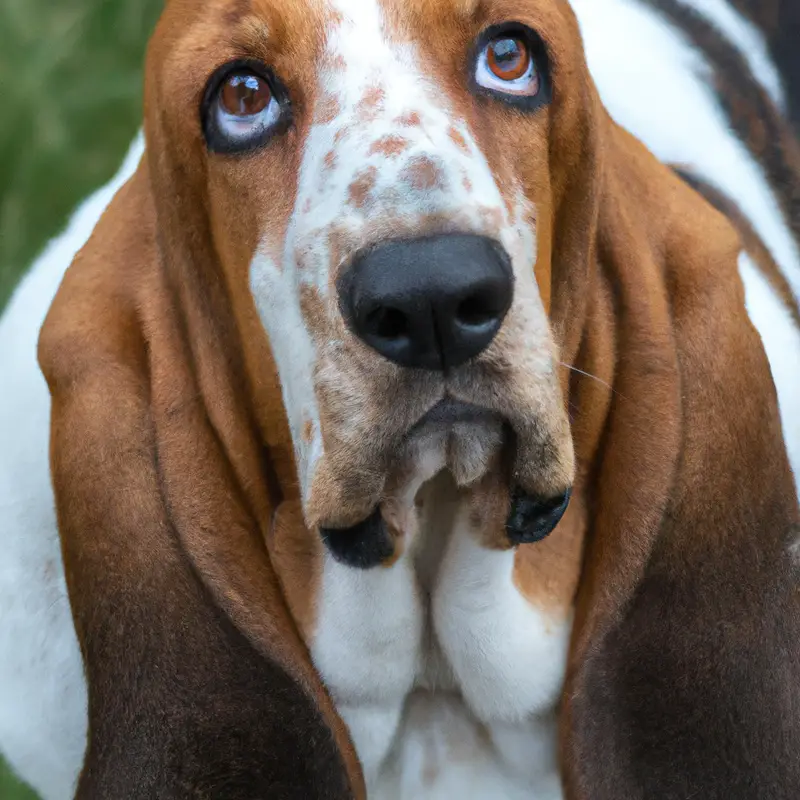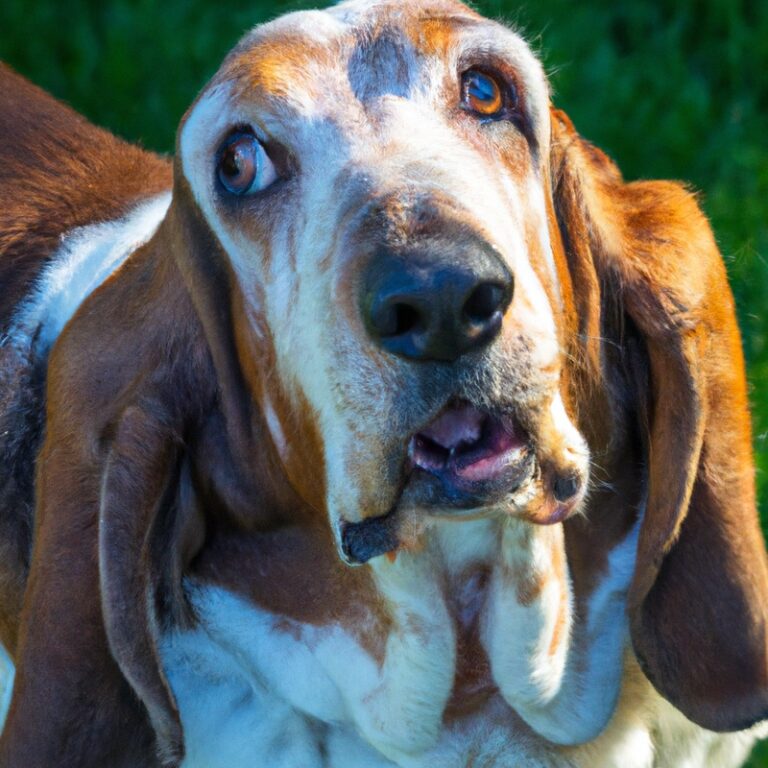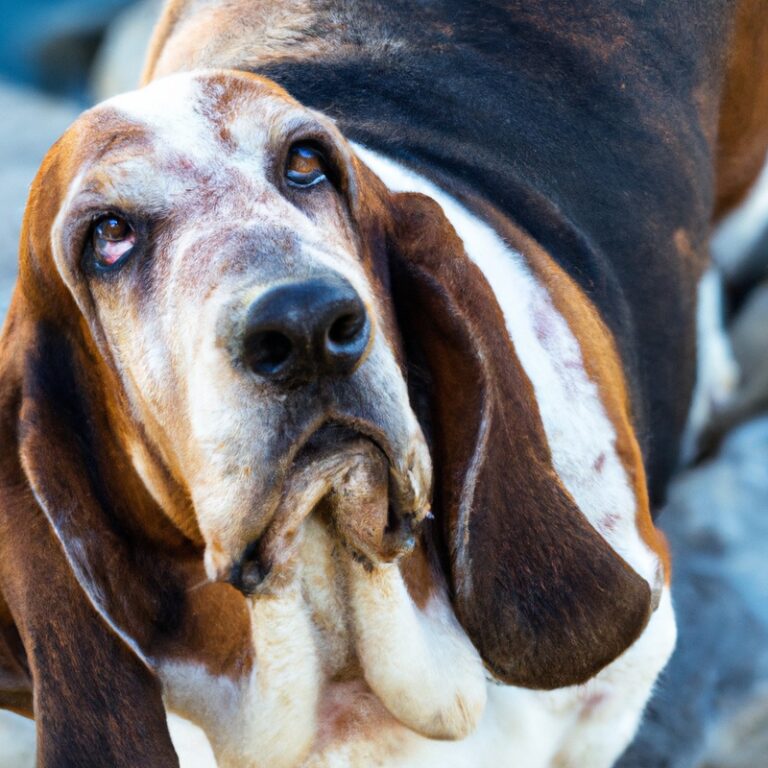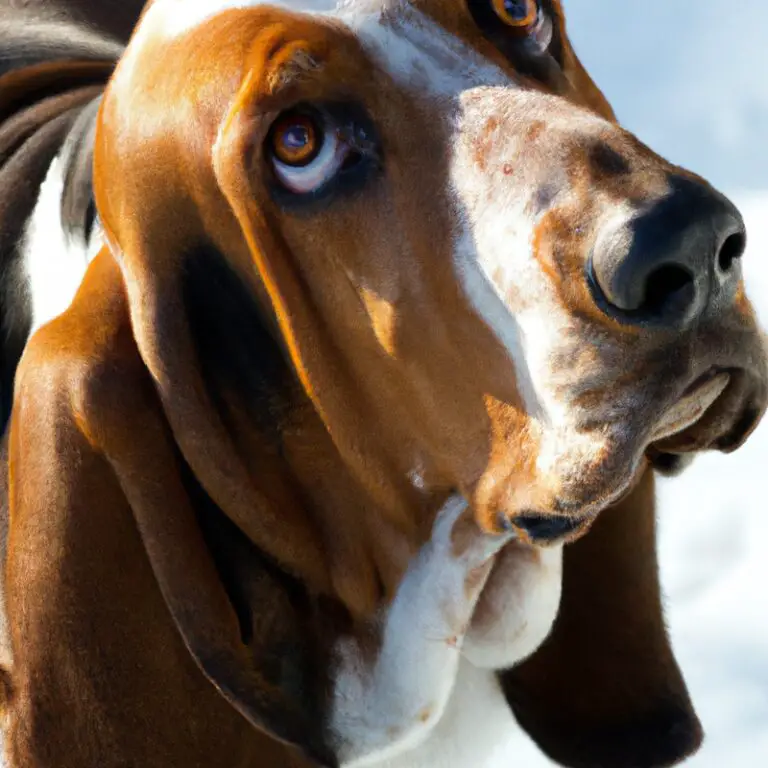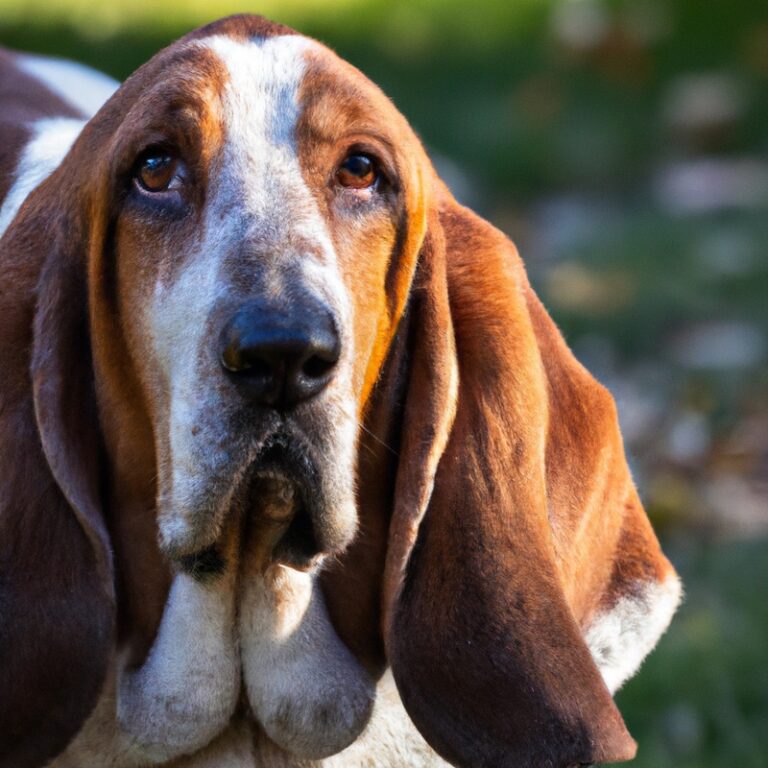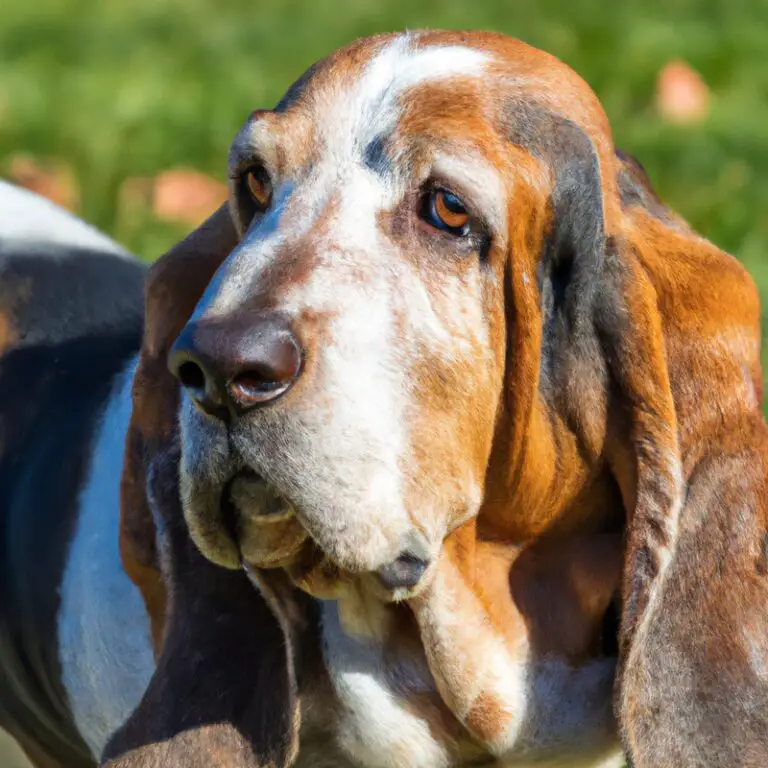Can Basset Hounds Be Trained For Scent Work In Narcotics Detection?
Key Takeaways:
- Basset Hounds can be trained for scent work in narcotics detection, but they may not be the most efficient breed for this task.
- Basset Hounds possess a strong sense of smell, which makes them suitable for scent work.
- The laid-back and independent nature of Basset Hounds can pose challenges in their training for narcotics detection.
- While Basset Hounds can be trained for scent work in narcotics detection, other breeds may have an advantage due to their specific characteristics and traits.
Are you intrigued by the exceptional olfactory abilities of dogs and their potential in scent-related tasks? Picture this: a Basset Hound, with its iconic droopy ears and soulful eyes, on a mission to sniff out illicit substances as part of a narcotics detection team.
Sounds unlikely, right?
But here’s the thing – Basset Hounds possess impressive scenting capabilities that make them well-suited for such work. In this article, I’ll delve into the world of Basset Hounds, explore their unique traits, and discuss whether these lovable hounds can truly excel in the realm of narcotics detection.
Get ready to be amazed by what these floppy-eared detectives can achieve!
| Yes | No | |
|---|---|---|
| Pro | Basset Hounds have a strong sense of smell, which makes them suitable for scent work. | Basset Hounds’ independent nature and stubbornness may make training for narcotics detection more challenging. |
| Con | Basset Hounds’ long ears and droopy skin can hinder them from effectively sniffing out narcotics. | Basset Hounds are not commonly used for narcotics detection due to their unique anatomy and temperament. |
Understanding Basset Hounds and Their Abilities
Overview of Basset Hounds as a Breed
Basset Hounds are a unique breed known for their distinctive appearance and excellent scenting abilities. They have a well-built, low-set body with long ears, droopy eyes, and a strong sense of smell.
Bassets are friendly, calm, and loyal dogs, making them great companions for families.
They were initially bred for hunting purposes, particularly for tracking small game like rabbits. Despite their relaxed demeanor, Basset Hounds require regular exercise to keep them healthy and happy.
They are generally easy to train due to their intelligence and willingness to please.
However, they can be a bit stubborn at times, so patience and consistency are key when training them.
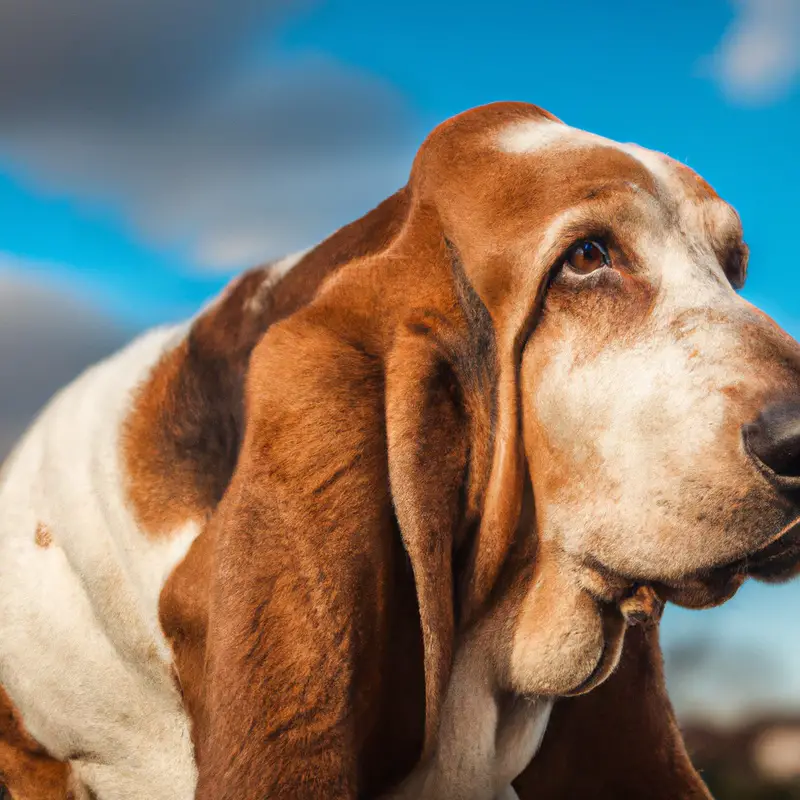
Unique Traits and Characteristics of Basset Hounds
Basset Hounds have several unique traits and characteristics that set them apart from other breeds.
They are known for their distinct appearance, with long ears, droopy eyes, and a low-set body.
Their sense of smell is exceptional, as they were originally bred for scent work, specifically for tracking game.
Bassets are also known for their calm and laid-back temperament, making them great family pets.
However, they can be stubborn at times and may require patience and consistent training.
Overall, their unique traits and characteristics make them well-suited for scent work and other specialized tasks.
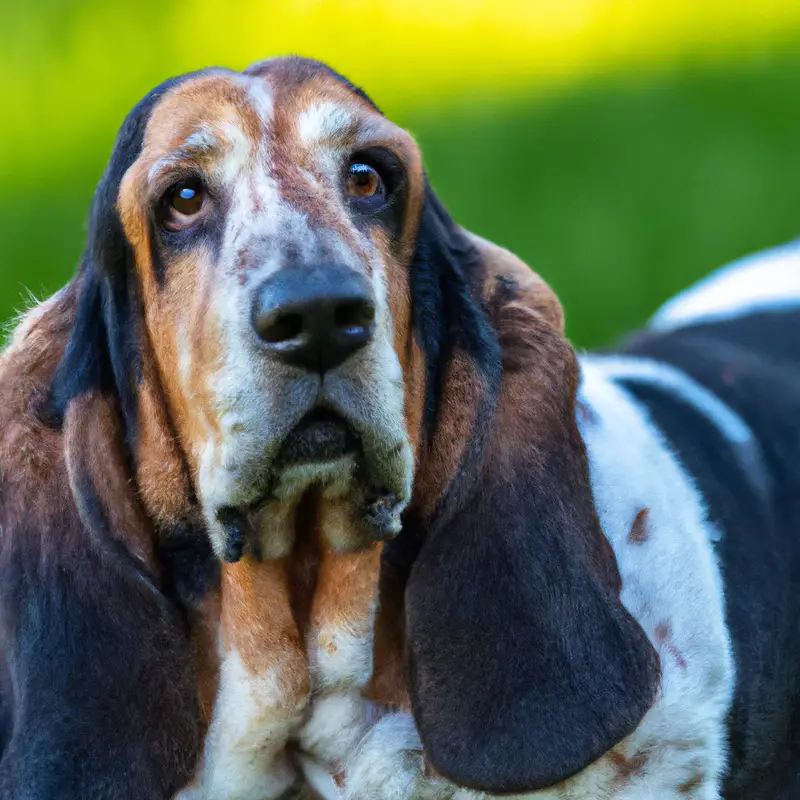
Basset Hounds and Scent Work Training
Basic Training Considerations for Basset Hounds
When training Basset Hounds, it’s important to consider their unique traits and characteristics.
Bassets are known for being independent and stubborn, so patience and consistency are key.
Positive reinforcement techniques work well for motivating them.
Socialization and obedience training should start at an early age to prevent behavioral issues.
Tailor training methods to suit their individual needs.
Keep in mind that Bassets have a keen sense of smell, making them great candidates for scent work training.
Overall, with the right approach and dedication, Basset Hounds can excel in training.
The Importance of Early Socialization and Obedience Training
Early socialization and obedience training are essential for Basset Hounds. During the first few months of a Basset Hound’s life, exposure to various people, animals, and environments is crucial for their development.
This helps them become well-rounded, adaptable, and confident dogs.
Obedience training teaches them basic commands and manners, making them easier to handle and ensuring their safety. It also establishes a strong bond between the owner and the dog.
These early experiences lay the foundation for a well-behaved and happy Basset Hound throughout their life.
Tailoring Training Methods for Basset Hounds
Tailoring training methods for Basset Hounds is essential to ensure their success in scent work. These dogs have unique traits and characteristics that require specific approaches.
I recommend using positive reinforcement techniques, as Basset Hounds respond well to praise and rewards.
Break training sessions into shorter periods to keep their attention. Incorporate obedience and socialization training early on to build a solid foundation.
Additionally, it’s important to consider their physical limitations and adjust training accordingly.
With patience and consistency, Basset Hounds can excel in scent work training.
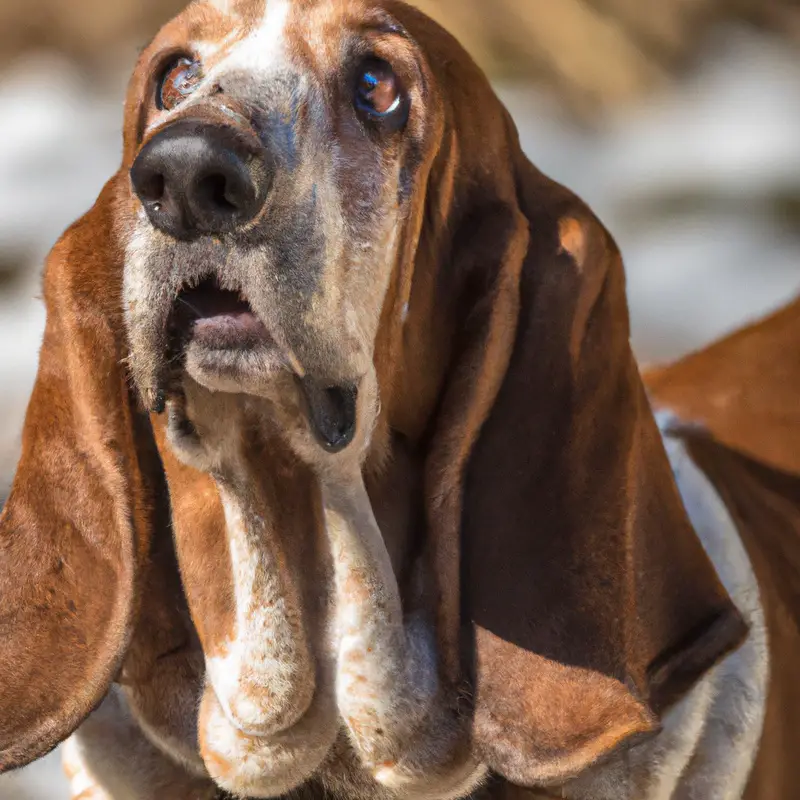
Challenges and Limitations in Training Basset Hounds for Scent Work
Training Basset Hounds for scent work can pose certain challenges and limitations.
Firstly, their strong sense of smell can be a double-edged sword, as they may become easily distracted or overwhelmed by different scents in the training environment.
Secondly, their independent nature can make them stubborn and less inclined to follow commands consistently.
Additionally, their long ears and droopy skin can impede their scenting abilities and make it harder for them to detect specific odors.
Patience, consistency, and customized training approaches are key when working with Basset Hounds for scent work.
Consider breaking down training sessions into shorter, focused sessions and incorporating positive reinforcement techniques to keep them engaged.
Can Basset Hounds Excel in Narcotics Detection?
The Role of Basset Hounds in Narcotics Detection
Basset Hounds can play a valuable role in narcotics detection.
These dogs have an exceptional sense of smell, which makes them adept at detecting illegal substances.
Their long ears and floppy skin help to trap scents, allowing them to pick up even the faintest odors.
Basset Hounds are known for their persistence and determination, which makes them well-suited for the task of searching for narcotics.
They have been successfully trained to identify drugs in various settings, including airports, schools, and border crossings.
Their unique abilities make them an asset in the fight against drug trafficking.
Evaluating Basset Hounds for Narcotics Detection Work
Evaluating Basset Hounds for narcotics detection work involves assessing their specific abilities and characteristics. Firstly, their sense of smell is exceptional, making them well-suited for scent work.
Their long ears and droopy skin, however, can sometimes hinder their agility and endurance.
It’s important to evaluate their physical fitness and overall health. Additionally, their temperament and trainability are crucial factors to consider.
Basset Hounds should possess a strong desire to work and a willingness to learn.
Proper evaluation helps in selecting Basset Hounds with the potential to excel in narcotics detection work.
Training Process for Basset Hounds in Narcotics Detection
Training Basset Hounds for narcotics detection involves several key steps. Firstly, it’s important to establish a strong foundation in obedience training and socialization from a young age.
This helps them develop good listening skills and confidence.
Secondly, scent recognition and discrimination exercises are crucial in teaching them to identify specific narcotics odors. Thirdly, gradual introduction to searching techniques, such as room searches and vehicle searches, helps them learn how to effectively search for hidden narcotics.
Consistency, positive reinforcement, and patience are key throughout the training process for Basset Hounds in narcotics detection.
Tips for Training Basset Hounds for Scent Work in Narcotics Detection
Positive Reinforcement Techniques for Basset Hounds
Positive reinforcement is key when training Basset Hounds for scent work. I use treats, praise, and rewards to motivate and reinforce desired behaviors.
I focus on rewarding the dog immediately after they demonstrate the correct behavior.
Consistency is key, as I want to create a positive association between the wanted behavior and the reward. I avoid punishment, as it can confuse and hinder the dog’s progress.
Training sessions are short, frequent, and fun, keeping the dog engaged and motivated.
Patience and consistency are vital in achieving success.
Important Commands and Skills for Narcotics Detection Work
When training Basset Hounds for narcotics detection work, there are several important commands and skills to focus on.
These include:
- Scent Detection: Teach your Basset Hound to actively search for and indicate the presence of narcotics through their sense of smell.
- Target Odor Identification: Help your dog distinguish between different target odors by using specific training aids or substances.
- Passive Indication: Train your Basset Hound to indicate the presence of narcotics by sitting or lying down calmly near the source, rather than pawing or scratching at it.
- Reliable Recall: Ensure your dog has a strong recall command to come back to you when called, even in distracting environments.
- Focus and Concentration: Teach your dog to maintain focus on the task at hand, ignoring distractions and staying attentive to scent work.
- Obedience and Control: Establish basic obedience commands to maintain control during training and real-life detection scenarios.
- Handler Communication: Develop clear and effective communication with your dog, using verbal cues, hand signals, or a combination of both.
- Stamina and Endurance: Build your Basset Hound’s physical fitness and stamina through regular exercise to support long search and detection sessions.
Remember, consistent practice, positive reinforcement, and patience are key to developing these important commands and skills for successful narcotics detection work with Basset Hounds.
Setting Up Practical Training Scenarios for Basset Hounds
Setting up practical training scenarios for Basset Hounds is essential for their success in scent work. Start with controlled environments to introduce them to different scents.
Gradually increase the difficulty by using different hiding spots and distractions.
Incorporate real-life scenarios to simulate actual detection situations. A variety of training aids and props will help replicate different types of narcotics.
Regularly expose them to new scents and environments to keep their skills sharp.
Consistency and positive reinforcement are key in training Basset Hounds for scent work.
Ongoing Maintenance and Continued Training for Basset Hounds
When it comes to ongoing maintenance and continued training for Basset Hounds, consistency is key.
Regular exercise to keep them physically and mentally stimulated is important.
Daily walks, playtime, and interactive toys all contribute to a well-rounded dog.
Continued training should focus on reinforcing basic obedience commands and improving scent work skills.
Incorporating positive reinforcement techniques, such as treats and praise, will help keep your Basset Hound motivated and engaged.
Setting up practical training scenarios, like hiding scented objects, will also keep their scent tracking abilities sharp.
Remember, training is an ongoing process, so it’s important to continue practicing and reinforcing learned behaviors throughout your Basset Hound’s life.
By maintaining consistent training and exercise routines, you can help your Basset Hound reach their full potential in scent work and overall obedience.
Final Verdict
I firmly believe that Basset Hounds have the potential to excel in scent work, including narcotics detection. Their exceptional sense of smell, coupled with their tenacity and intelligence, make them well-suited for this type of work.
However, it’s important to understand and address the unique challenges and limitations that Basset Hounds may face during training.
By utilizing positive reinforcement techniques, tailoring training methods to their specific needs, and providing ongoing maintenance and continued training, Basset Hounds can become valuable assets in the field of narcotics detection. With dedication, patience, and the right training approach, Basset Hounds can indeed be trained for scent work in narcotics detection successfully.

